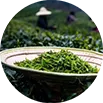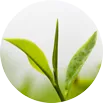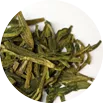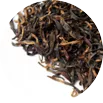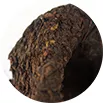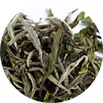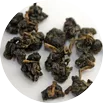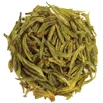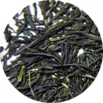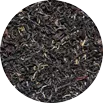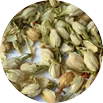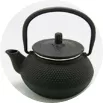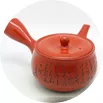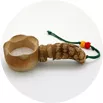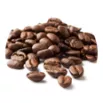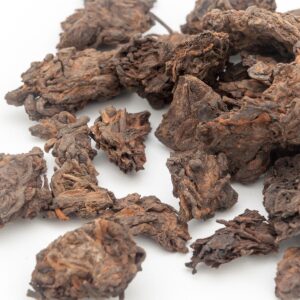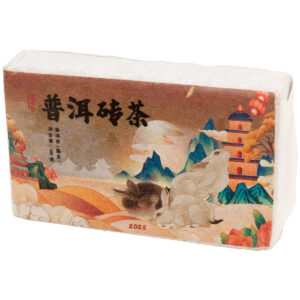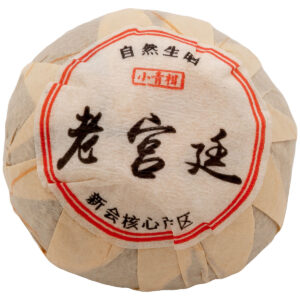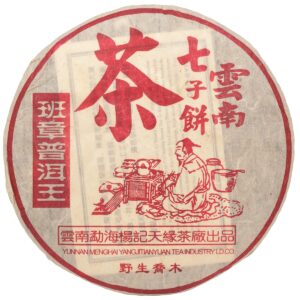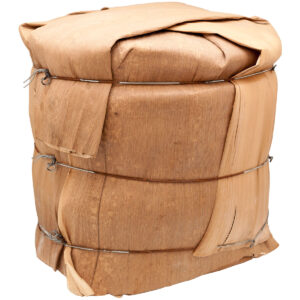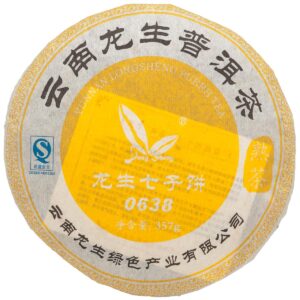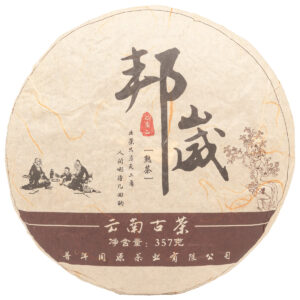Cha Tou 2014
Simao 2023 shu Orijin Bing Cha 357g
Simao 2023 shu Orijin Tuo Cha 100g
Ban Pen 2019 shu Dashu Bing Cha 357g
Simao 2023 shu Orijin Mini Bing Cha 56g
Meng Hai 2017 Fang Cha 81g
Xiao Qing Gan 2009 Xinhui
Long Sheng 2006 shu Bing Cha 357g
Bang Wai 2016 shu Bing Cha 357g
Manufacture process of ripe puer tea:
Withering: After the fresh tea leaves are harvested, they are spread out in the sun for a few hours to wither and reduce their moisture content. This process helps to make the leaves more pliable and easier to handle in the subsequent steps.
Piling: The withered tea leaves are then piled up in a controlled environment, usually in a large room with high humidity and temperature. The leaves are covered with a cloth or plastic sheet to retain moisture and heat, and left to undergo a natural fermentation process. During this process, microbes and enzymes present in the leaves break down the complex compounds, producing various aroma and flavor compounds.
Turning: The tea piles are regularly turned by hand to ensure even fermentation. The temperature and humidity levels are also monitored and adjusted as needed to maintain optimal conditions for fermentation.
Drying: Once the fermentation process is complete, the tea leaves are spread out on bamboo trays and dried in the sun or in a low-temperature oven. This helps to stop further fermentation and reduce the moisture content of the leaves to about 5%.
Sorting: The dried leaves are then sorted by hand or machine to remove any impurities or unwanted material. The leaves are also graded based on their size, shape, and quality.
Aging: Ripe Puer tea is often aged for several years, which helps to develop its flavor and aroma further. The tea is usually stored in a cool, dark, and well-ventilated place, such as a tea cellar or bamboo basket.
Pressing: The dried tea leaves are then lightly steamed and compressed into cakes, nests or bricks using a traditional or hydraulic press. The pressing step helps to compact the tea leaves.
Overall, the manufacture process of ripe Puer tea requires careful attention to detail and a deep understanding of the fermentation process. It is a time-consuming and labor-intensive process, but the resulting tea is highly prized for its unique flavor and health benefits.
Health benefits:
Digestive health: Ripe Puer tea contains probiotics that can help improve digestion and promote gut health.
Cholesterol: Ripe Puer tea has been shown to help lower LDL (bad) cholesterol levels in the body.
Blood sugar: Ripe Puer tea can help regulate blood sugar levels, making it a good choice for those with diabetes or at risk of developing diabetes.
Anti-inflammatory: Ripe Puer tea has anti-inflammatory properties that can help reduce inflammation in the body and improve overall health.
Antioxidant: Ripe Puer tea contains high levels of antioxidants, which can help protect the body against damage from free radicals and reduce the risk of chronic diseases.


